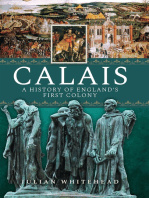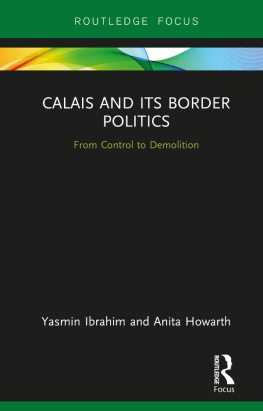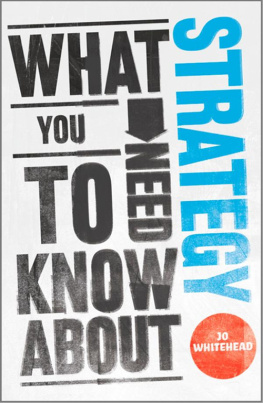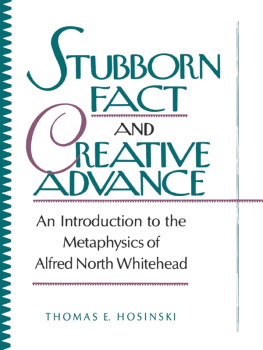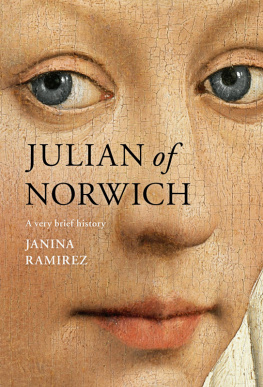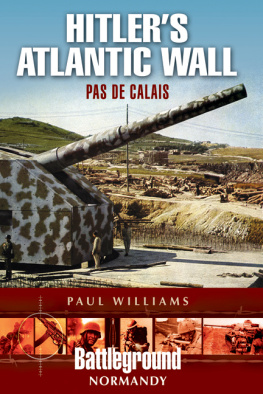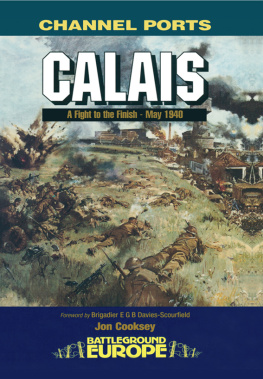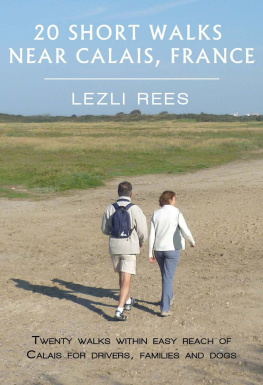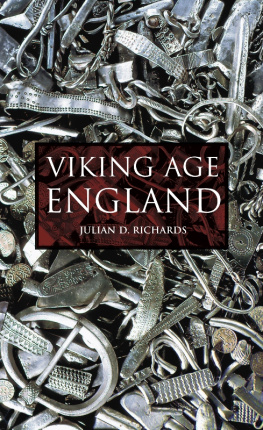Julian Whitehead - Calais: A History of England’s First Colony
Here you can read online Julian Whitehead - Calais: A History of England’s First Colony full text of the book (entire story) in english for free. Download pdf and epub, get meaning, cover and reviews about this ebook. genre: History. Description of the work, (preface) as well as reviews are available. Best literature library LitArk.com created for fans of good reading and offers a wide selection of genres:
Romance novel
Science fiction
Adventure
Detective
Science
History
Home and family
Prose
Art
Politics
Computer
Non-fiction
Religion
Business
Children
Humor
Choose a favorite category and find really read worthwhile books. Enjoy immersion in the world of imagination, feel the emotions of the characters or learn something new for yourself, make an fascinating discovery.
- Book:Calais: A History of England’s First Colony
- Author:
- Genre:
- Rating:5 / 5
- Favourites:Add to favourites
- Your mark:
- 100
- 1
- 2
- 3
- 4
- 5
Calais: A History of England’s First Colony: summary, description and annotation
We offer to read an annotation, description, summary or preface (depends on what the author of the book "Calais: A History of England’s First Colony" wrote himself). If you haven't found the necessary information about the book — write in the comments, we will try to find it.
Calais: A History of England’s First Colony — read online for free the complete book (whole text) full work
Below is the text of the book, divided by pages. System saving the place of the last page read, allows you to conveniently read the book "Calais: A History of England’s First Colony" online for free, without having to search again every time where you left off. Put a bookmark, and you can go to the page where you finished reading at any time.
Font size:
Interval:
Bookmark:
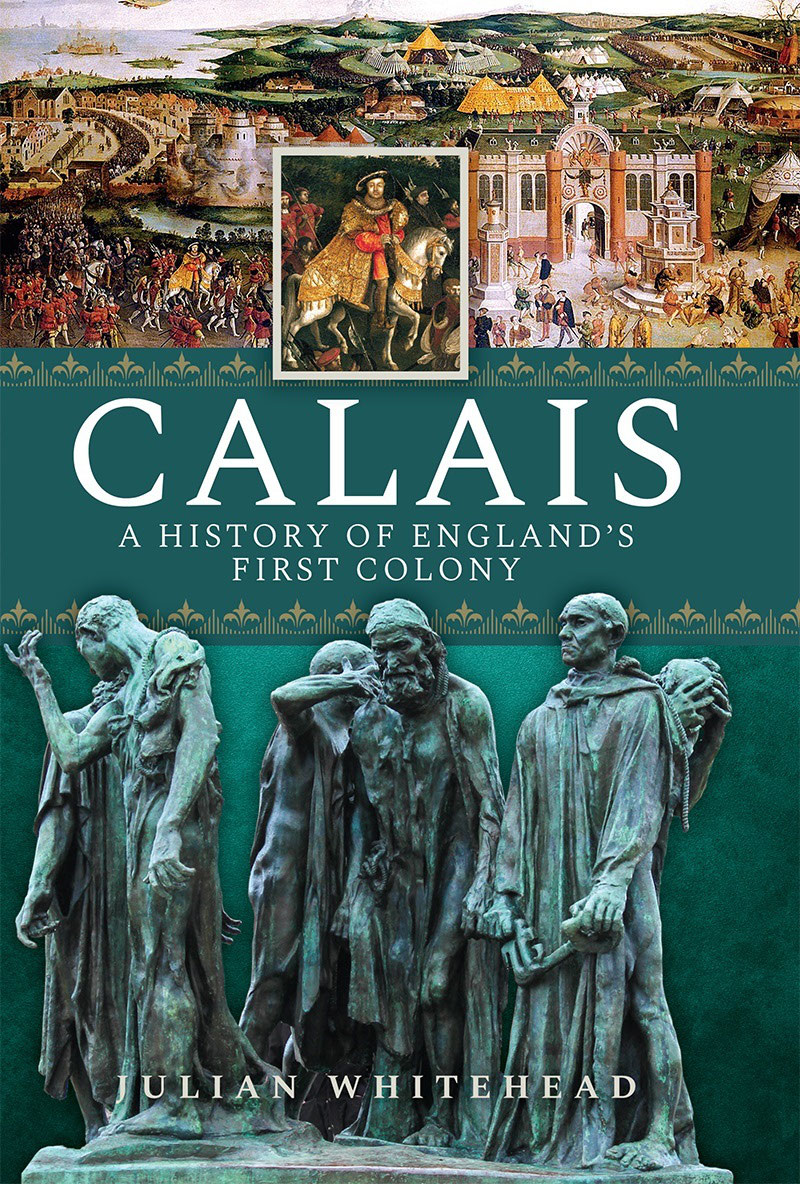
Calais
For DM
Calais
A History of Englands First Colony
Julian Whitehead

First published in Great Britain in 2022 by
Pen & Sword History
An imprint of
Pen & Sword Books Ltd
Yorkshire Philadelphia
Copyright Julian Whitehead 2022
ISBN 978 1 39901 071 9
ePUB ISBN 978 1 39901 072 6
Mobi ISBN 978 1 39901 072 6
The right of Julian Whitehead to be identified as Author of this work has been asserted by him in accordance with the Copyright, Designs and Patents Act 1988.
A CIP catalogue record for this book is available from the British Library.
All rights reserved. No part of this book may be reproduced or transmitted in any form or by any means, electronic or mechanical including photocopying, recording or by any information storage and retrieval system, without permission from the Publisher in writing.
Pen & Sword Books Limited incorporates the imprints of Atlas, Archaeology, Aviation, Discovery, Family History, Fiction, History, Maritime, Military, Military Classics, Politics, Select, Transport, True Crime, Air World, Frontline Publishing, Leo Cooper, Remember When, Seaforth Publishing, The Praetorian Press, Wharncliffe Local History, Wharncliffe Transport, Wharncliffe True Crime and White Owl.
For a complete list of Pen & Sword titles please contact
PEN & SWORD BOOKS LIMITED
47 Church Street, Barnsley, South Yorkshire, S70 2AS, England
E-mail: enquiries@pen-and-sword.co.uk
Website: www.pen-and-sword.co.uk
Or
PEN AND SWORD BOOKS
1950 Lawrence Rd, Havertown, PA 19083, USA
E-mail: Uspen-and-sword@casematepublishers.com
Website: www.penandswordbooks.com
Back cover: The coat of arms of Henry VIII and Edward VI. (Inkscape)
Like most people, I knew that Calais had featured in English history, but it is only in recent years that I decided to look into it in more detail. Delving into the subject I was surprised to discover just how important a part Calais has played over the last 675 years. I became so struck by the fascinating events surrounding Calais entwining with Englands past that I decided to share what I had discovered by writing this book, in the hope that others would find it equally interesting.
There are many I would like to thank for enabling me to turn what I think is an enthralling subject into a book. I am indebted to all the authors of the books and periodicals listed in the Bibliography and to the Bodleian Library for making them available to me. I would also like to thank the Royal Collection and National Portrait Gallery for their assistance and permission for me to use their images for illustrations. Mention must also be made of the help I have obtained through the Internet, particularly information available on Wikipedia and imagery from Wikimedia Commons. As always, I have received advice and encouragement from the staff of Pen and Sword, particularly Claire Hopkins, the Senior Commissioning Editor, and Laura Hirst the Production Manager. Finally, I want to thank my wife for her help and support.
To most British people Calais is a town to pass through swiftly when crossing the Channel by sea or rail. They will be aware that it is a major trade route between the United Kingdom and the Continent and that in times of disruption long queues of lorries can be found along the A20. They will also know that it has been a base for illegal immigrants attempting to cross the Channel. However, there may be little awareness that Calais was Englands first colony and that for over two hundred years the town and its twenty-one square mile territory was an integral part of England, with its own MPs sitting in the Westminster Parliament.
Few will think, even after England lost Calais in 1558, that it played an important part in British history, not least as the site for planned invasions by Louis XIV, Napoleon and Hitler. Also, that the loss spurred England into exploration and trade outside Europe, resulting in other colonies that evolved into the British Empire. Indeed, this history is by no means obvious. The massive destruction inflicted on Calais during the Second World War has left virtually no trace of the towns long association with England. This book seeks to reveal this vanished past and help Calais take its rightful place as an important thread running through British history.
Geography is the key to the historical importance of Calais. The ancient settlement which was to become Calais had a sandy beach and a creek providing a potential harbour at the west edge of the estuary of the River Aa. There are several natural harbours along the Northern French coast, but the Calais harbour is closest to England and just twenty-four miles from the English port of Dover. The proximity of Calais to England enabled it to offer a short crossing for traders, visitors or invading armies. Over the years the geography changed as the estuary silted up and surrounded the town with inaccessible marsh land. This was to give the town a strong watery defence which in later years would be turned into canals to provide commercial links with other towns in the region.
Julius Caesar was the first person in English History to take advantage of the geography of Calais and to use its creek to embark two legions for his expedition to Britain in 55
BC
. Caesar made another short expedition to Britain the next year, with five legions, but it was not until ad 43 that the major Roman invasion of England occurred. Aulus Plautius landed with 40,000 troops which eventually conquered the country. This great force was not embarked at Calais but at the more suitable natural harbour of Gesoriacum (present-day Boulogne), and landed in Richborough in Kent. Little use was made of Calais during the Roman occupation and apart from being the embarkation area for Julius Caesars expeditions, it did not really feature again in English history for one thousand and one hundred years, until the reign of Edward III. Nevertheless, it is worth spending a few moments to see how the relationship between England and France developed during that long passage of time.
The departure of the last Roman legions from Britain led to attacks, followed by colonisation, from Angles, Saxons, Jutes and finally Vikings. The north mainland of Europe was invaded, principally, by the Franks, who eventually established the great empire of Charlemagne. After the death of Charlemagnes successor, his empire was divided in three, in the year 843. West Francia eventually became France, East Francia was to become Germany, and the short lived Middle Francia became Burgundy and the Low Countries. Calais was on the borders of Middle Francia and it was this region of former Middle Francia which was destined to be a battle ground for European powers right up until 1945, with Britain often dragged into the conflict.
By the time of the reign of Edward the Confessor, 10421066, Britains overseas settlers had coalesced into an Anglo-Saxon kingdom, but one with a French connection. Edwards mother was Emma of Normandy, and he spent twenty-five years of exile in Normandy while England was under Danish rule, and then returned as king after the death of Cnuts son. Edward brought several Norman friends with him to England and may well have wanted his cousin, William of Normandy, as his heir. Whether or not that was the case, when Edward died William invaded, in 1066, and Britain became a conquered land under Norman rule, with a king and his barons having domains on either side of the Channel.
Next pageFont size:
Interval:
Bookmark:
Similar books «Calais: A History of England’s First Colony»
Look at similar books to Calais: A History of England’s First Colony. We have selected literature similar in name and meaning in the hope of providing readers with more options to find new, interesting, not yet read works.
Discussion, reviews of the book Calais: A History of England’s First Colony and just readers' own opinions. Leave your comments, write what you think about the work, its meaning or the main characters. Specify what exactly you liked and what you didn't like, and why you think so.

